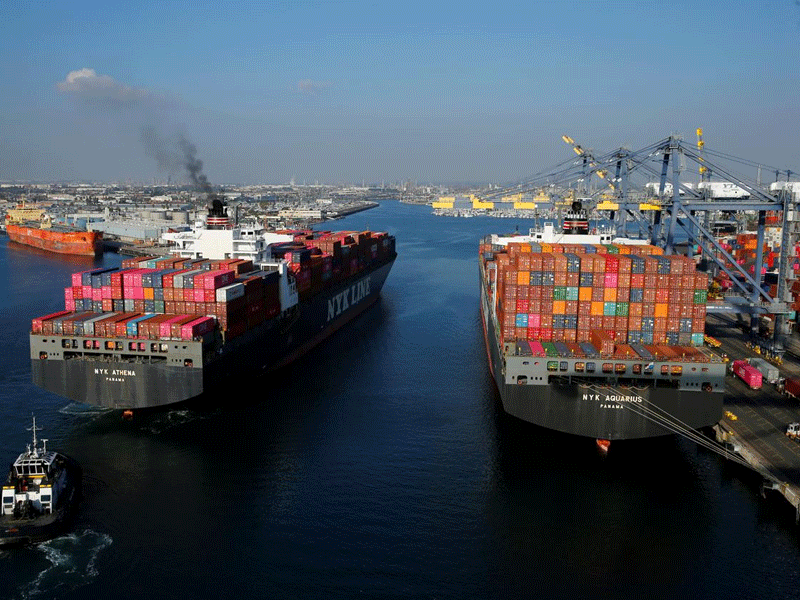Mechanism needed to prevent smuggling of goods

- 253
- 0
Caretaker Prime Minister Anwar-ul-Haq Kakar in a high-level meeting has directed the customs officials and law enforcement agencies to strictly prevent the smuggling of sugar, urea, agricultural commodities, petroleum products and other goods from the country.
Later, in the light of this, the Prime Minister compiled an intelligence report of the officers involved in this heinous business in Balochistan and ordered disciplinary action against them.
He also decided to hold a weekly meeting to review the performance of the concerned departments and officials.
This is a good move by the caretaker Prime Minister, but there is a need for fool-proof arrangements to strictly enforce it.
In April this year, the organization of local mills producing iron rods (saria) wrote a letter to the government and informed the government that 80% of the saria sold in Balochistan is being smuggled from neighboring countries, which are now in Lahore, Karachi, and other countries due to weak security.
It has reached the cities. One of the main reasons for the smuggling of other goods, including silk, is the high price of domestic products compared to others. Similarly, the hoarding mafia smuggles local produce abroad at higher rates than the domestic market to save tax at the opportunity.
This trend is equivalent to running a parallel system of the national economy due to which the country is losing billions of rupees in revenue every year. All this is impossible without the patronage and facilitation of government officials.
The recent artificial shortage of sugar and its price crossing Rs 180 per kg is a link in this chain.
It is the urgent need of the hour to take immediate legal action in the light of the available evidence, keeping a close watch on the movement of commodities, including the dollar, which are under artificial scarcity and inflation.
It may be mentioned here that the previous coalition- government had also clamped down on those who smuggled essential commodities abroad in the country, imposing heavy fines and two-year imprisonment on those involved in the smuggling of wheat, flour, sugar and fertilizers.
The smuggling abroad is not acceptable in any way and the current economic situation of the country cannot afford it. Those who have caused billions of dollars of damage to the country should be punished. The previous coalition government had also directed SPARCO to provide real-time satellite imagery of the country's borders and traffic data, prompt operations, increase the number of check posts in the border districts of Khyber Pakhtunkhwa and Balochistan, take action against warehouses used for stockpiling and smuggling and issued instructions to immediately activate the anti-trafficking courts, to present the action plan for anti-trafficking within two days.
It was also ordered that the sale of sugar and urea fertilizer seized during the operation should be ensured at official rates, and honest officers should be appointed at the international border.
Earlier, FBR officials had said that 740 godowns have been identified with thousands of tonnes of sugar, urea seized and stockpiled in the border districts.
According to FBR officials, a penalty equal to the total value of the smuggled item will be imposed under the Customs Act.
Strict measures by the Government to stop smuggling are imperative as it creates artificial scarcity of commodities, which increases inflation.
The main reason for this is the price difference.
Meanwhile, the Govt should also take note of the deteriorating state of the industrial sector. The situation of the country's industry requires that all possible measures should be taken to bring it out of decline. This requirement is required in all large, medium and small industries. Industries are a source of revenue to the government and create employment opportunities for the common man. But a long list of difficulties and obstacles has led to the closure of several industries and is highlighting the downward trends in others.
According to the Pakistan Bureau of Statistics, the production of large-scale manufacturing industries recorded a decline of 11.6 percent last year, which is higher than the estimates.
According to experts, the reasons for the industrial decline include the rising cost of fuel, the economic downturn and the uncertainty of government policies. Due to restrictions on imports by the government, the closure of factories continues one after the other.
The World Bank has predicted a negative 0.4 percent GDP growth rate in the industrial and agricultural sector during the current fiscal year, while further decline is expected in the coming months.
The import ban was a compulsion of the government due to the shortage of dollars. This ban proved to be detrimental to the economy. The government estimated that the GDP growth rate would be 5.1 percent, but according to the Ministry of Finance, the World Bank and the IMF, large-scale manufacturing records show that the GDP growth rate this year was 1 percent.
Food, tobacco, textile, petroleum products and cement sectors contributed more to the negative growth. To overcome these difficulties our economic managers have to plan effectively. Increasing foreign exchange by making the agricultural sector more active and exporting several cash-generating items should be given top priority. While there is also a need to pay attention to trade in goods for goods and transactions in alternative currencies.
The economic deterioration is growing rapidly in the country and the resulting uncertainty and anxiety was expressed in the seminars and views of the think-tank.
Establishing a free and transparent accountability system is our indispensable national need, reforms in the judicial system are also necessary to make the legal process transparent and transparent and prevent unnecessary delays in decisions while restoring public confidence in the future of the country.
Urgent measures are necessary and for this political forces, economists, business circles and all state institutions must come together to formulate a workable and effective program.
Published in The Daily National Courier, September, 04 2023
Like Business on Facebook, follow @DailyNCourier on Twitter to stay informed and join in the conversation.

















































